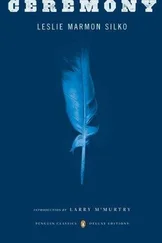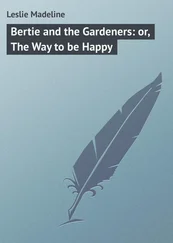Indigo knelt on the train seat with her cheek against the window, watching the trees and fences move past. As the sun sank low in the west, the clouds on the horizon blazed with yellow and red light. The train was headed east just as Hattie had promised. Indigo’s heart beat faster as she recognized the tall yucca plants from last year, when she watched at the train window all day and all night and memorized the landmarks to get her back home. Indigo asked if she might walk through the train, but Hattie explained that it was not permitted for children to walk about without an adult. They walked the length of the train and back, Indigo walking ahead of Hattie; the passengers stared at the child, then stared at Hattie before returning to the child, who wore her dress very nicely but went about in her stockings without shoes. “A missionary,” someone whispered behind them as they passed from the sleeping car to the observation car.
On their walk through the train, Indigo paid close attention to the passageway between the train car doors, to the steps off the train. She watched for familiar terrain — the sandy dunes below darker basalt hills, the creosote bush and burr sage. Then she would know the train was nearing Needles, where it had to stop to take on water and coal. Indigo was so excited she could hardly wait. She knew what she must do to escape.
All afternoon Indigo knelt on the seat for a better view; mile after mile she watched the land change. The lush green of citrus groves began to fade into pale greens and pale yellows of spring grass and wildflowers; a few miles more and there was only the spidery dark green shrubbery of the greasewood that covered the coarse alluvial gravel. The greasewood forest extended in all directions as far as one could see; far, far in the distance through the blue haze of late afternoon, Indigo could barely make out the blue outlines of desert mountains, which she did not recognize.
Just before sundown, the train stopped at a small train depot named San Bernardino to take on extra water and coal for the gradual ascent through the low mountain pass. Edward joined other passengers who took the opportunity to get off the train to stretch their legs. Indigo watched Hattie hopefully, but she was reading a book and only glanced up when the train stopped and when Edward left the car. Indigo stood up and stepped toward the door. Hattie looked up from her book and asked if she needed to use the lavatory. Indigo shook her head. She wanted to get down from the train and walk. Hattie looked out the windows and shook her head. There wasn’t time. Edward was about to reboard. The stop was almost over. A moment after Edward reentered the compartment, Indigo felt the train jerk and move forward and they were off again. She knelt on the seat, her face at the window to watch the blue outlines of the mountains in the distance fade into the lavender-blue twilight.
Later there was a knock and the porter entered the compartment and lit the lamps. Hattie closed the volume of early church history by Eusebius.
“Indigo,” she said, “how would you like a nice warm bath before dinner?” Indigo shook her head. She had already bathed that morning and she had never heard of any one bathing more than once in the same day unless they fell into something very smelly or very sticky.
Hattie smiled.
“Well, I think a warm bath would feel heavenly,” she said as she approached the door to the sleeping compartment. Edward glanced at Indigo, whose eyes never left the window, then he looked at the telegrams and other correspondence on the small table in front of him. Edward smiled and agreed with Hattie, then went back to his writing.
Without Hattie in the room the scratch-scratch of Edward’s pen’s steel nib and the occasional tink-tink of steel against the glass neck of the ink bottle sounded much louder to Indigo. Occasionally she heard Edward speak softly to himself or to the piece of paper; she was not certain. He seemed very intent, as if he were arguing with the paper. Indigo watched out the window as the little darkness eased herself over the greasewood forest; far behind her, big darkness came. The lamp’s light reflection filled the train window and Indigo could not see outside unless she pressed her face against the glass.
Hattie noticed the child’s fixed attention out the train window — entirely normal for a child on a train ride. But as they ate dinner, Hattie was surprised to notice Indigo’s gaze out the window had only intensified.
“Indigo, what is it that you see out there?” she finally asked. Indigo glanced at Edward, then looked at Hattie and shook her head. In all the excitement and noise of the journey, the child withdrew into herself, just as Hattie feared she might, though Indigo’s appetite did not seem to be affected; she ate the roast beef and vegetables on her plate, and when more food was served, it disappeared from the plate in no time. Edward, who complained of a headache from working on correspondence all afternoon, felt restored by the excellent dinner.
As the waiter served their slices of apple pie, they felt the train slow and the conductor called out, “Barstow,” a stop for water and coal. For the first time in hours, Indigo turned away from the train window and repeated the name of the stop. Indigo asked the name of the next stop, and Hattie looked to Edward, who reached into his bag and brought out a leather-bound traveler’s atlas that he took on all his expeditions. When he found the page, Edward kindly spread open the atlas on the table in front of Indigo and adjusted the lamp wick so there was enough light.
“See,” he said, pointing with his forefinger. “Here is the Barstow stop we’ve just departed, and over here, quite a distance really, is our next stop: Needles.” Indigo’s heart was pounding as she repeated the word that meant sharp-pointed objects, a good name, all right, for that town, she thought. Indigo was careful not to betray her excitement; she turned back to the window but over and over she repeated “Needles” to herself in rhythm with the train.
She had prepared as best she could for her escape by taking extra slices of roast beef off her plate to wrap in the napkin with the slices of bread. When no one was looking she maneuvered the bundle under her skirt and into her panties next to her belly. Grandma Fleet said always take food along.
After dinner Edward insisted he felt up to another letter or two and proceeded to refill his fountain pen. Indigo remained pressed to the window. Hattie brought out the garden books with the lovely tinted illustrations, but Indigo shook her head without even glancing at the books.
“You must be exhausted,” Hattie said. “I’ll go see if the trainman made up the berths.”
When Hattie gave her the nightgown, Indigo waited until she turned, then slipped it over her head without removing her clothes. She smelled the roast beef against her skin and wondered if Hattie would notice when she came to tuck her into bed. Now came the wait; she knew she must stay awake so she could creep out of the sleeping compartment at the first sensation the train was slowing for a stop. To keep herself awake, Indigo whispered a message to Sister Salt, the same message she sent to Linnaeus: “I love you so much and I miss you too. I send all my love with these words. I’m on my way. I’ll see you soon. I am always your sister Indigo.” She repeated the words softly until they were a little song that she sang a bit louder each time until Hattie looked in from the parlor car to ask if everything was all right. Indigo pretended she was asleep and did not answer.
After Edward and Hattie got into their berths, Indigo waited until they both were breathing slowly and deeply, then she slipped out of her berth and crept to the door to the parlor compartment. The door opened silently but the latch closed with a loud click. Indigo froze and held her breath, but heard no one stir in the berths. Indigo took her seat in the dark parlor car and watched the stars; no matter how fast the train moved and the earth moved, the stars remained unhurried on their slow journey.
Читать дальше












